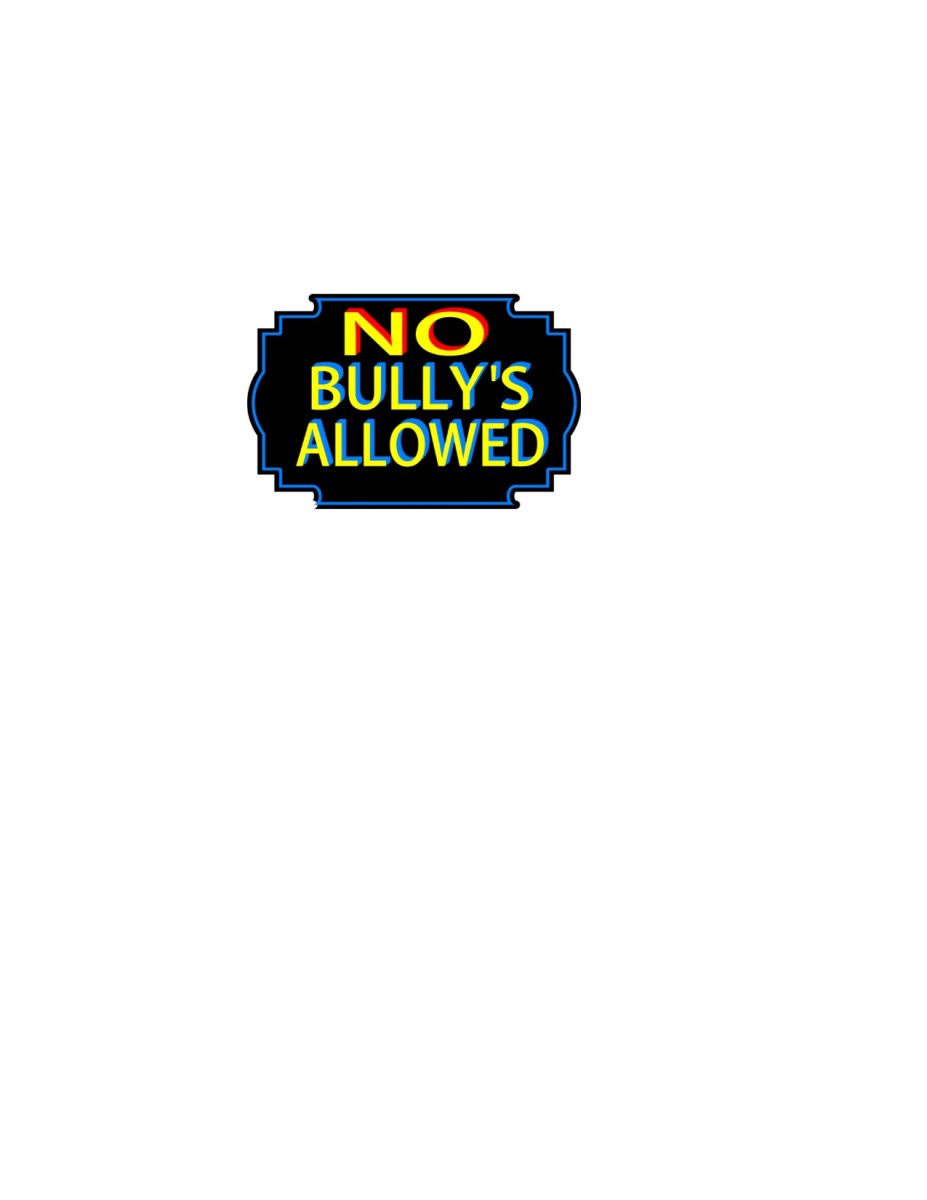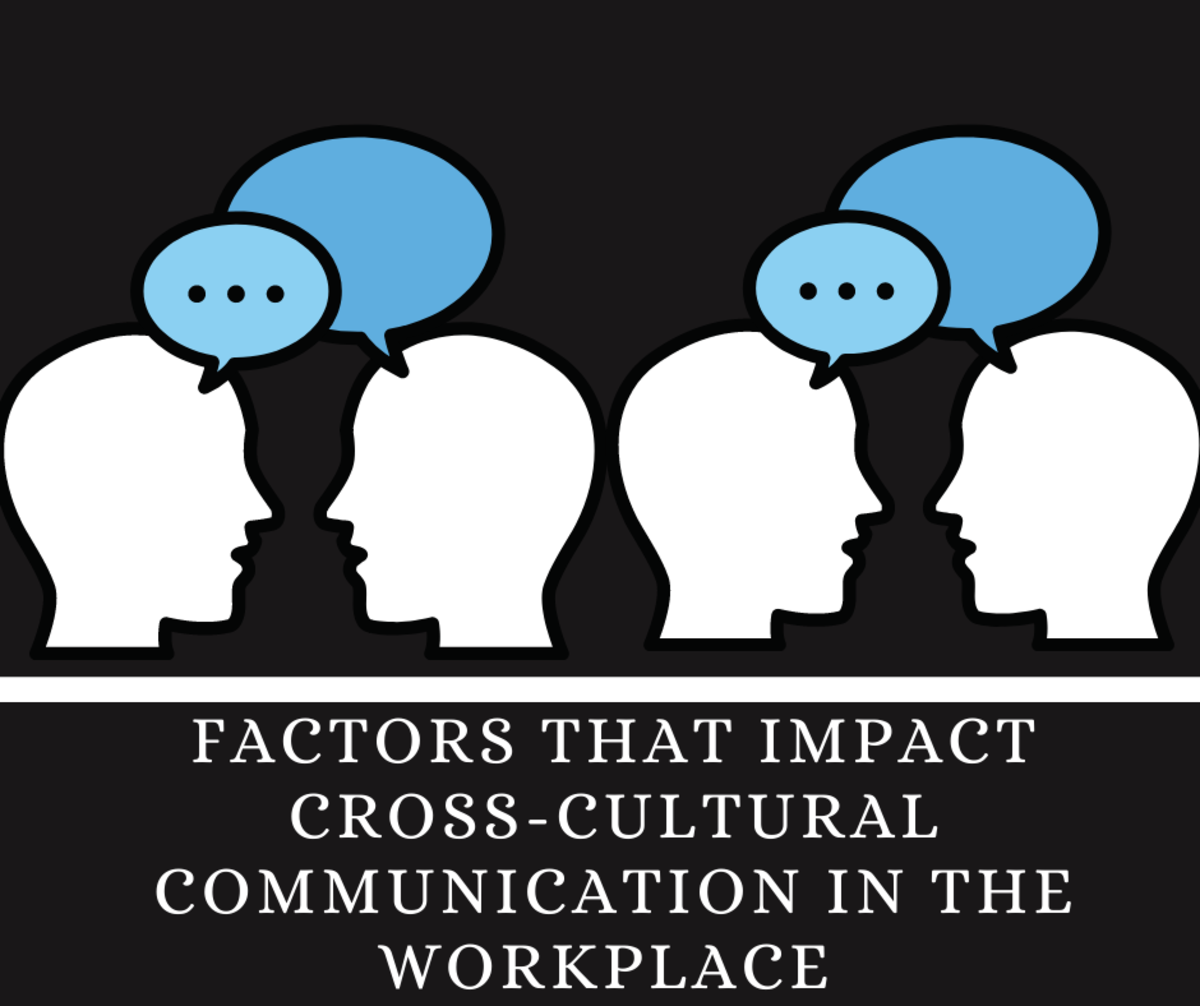How To Deal With Bullying In The Workplace

Workplace Bullying Statistics
According to the Workplace Bullying Institute (or WBI), 27% of Americans have suffered abusive conduct at work, another 21% have witnessed it, and 72% are aware that workplace bullying happens.
How does this help us? WBI has completed extensive research, and as such, they have more tips, online coaching tools, and seminar topics accessible through their website.

Okay, but isn't bullying for kids?
I know that one of my hardest lessons in the workplace when dealing with a bully was my shame! Bullying was for children, right? How could it be that I wanted to use that word for a grown man?
Definition
Here's the thing: Bullying is defined as the mistreatment of a person via threatening, sabotage, or other forms of verbal or physical abuse [WBI]. Sounds a bit more adult--and scarily realistic--than at first thought, doesn't it?
When a colleague or boss tries to intimidate or otherwise make you feel uncomfortable in the workplace, understanding a why or where they're coming from isn't going to change the fact that you get knots in your stomach every time you walk to the building's employee entrance.
How they're behaving is in fact childish; it's a show of power--a cruel one--that is usually described for petty, jealous children on the playground. You're not going to get them to realize what they're doing is wrong, childish, or in fact unhelpful to the company.
Actions Against Workplace Bullying
What you can do is show them their tactics don't work. And no, I don't mean your mother's misguided "ignore them!" advice that never worked in elementary school either.
You're going to hold your ground and subtly (or not) let the problem-maker know that their behavior is unacceptable. And then you're going to go through the appropriate channels to report them (yes, even if you've done it before and have either been shot down, called a liar, or written up).
Be Aware Of The Risks
Just know that if you are going to report somebody for bullying, most employers do not take it well.
If you are mistreated in the workplace, you either need to get someone to help you stop it, or you need out. I'm going to help you see what's best.

Option 1: Taking A Stand Against A Bully
When you try to confront someone and get them to back off bullying you, you have to be in the right state of mind! Having the right words to say is only part of it.
If you go up, say your piece, and then have a man who is over a foot taller than you crowd you close to a wall, you're still going to be intimated, and all of the power behind your words is gone.
So the first step to getting into the right state of mind is to make sure you have identified them as a bully.
A. Identifying Your Bully
It seems almost too simple, but this is the key. Once you have identified the problem as a bully, as an abuser, or anything else you decide to call it, you have put a label to an outside source. This is essential to your mental health. You have to come to the realization that you have done nothing wrong. You haven't initiated anything, instigated anything, or caused anything.
That bully acts on their decisions--and only their decisions.
In 2012 [WBI-2012-Strategies Effectiveness], 70% of 1,600 individuals attempted to confront their bully without taking additional steps. This only ended 3.5% of bullying. [WBI]
B. Healing
Especially if you've worked in such hostility for as long as most have, (40% never tell their employers, 45% experience stress-related health problems, and a person has a 64% chance of losing their job for no reason after reporting a bully [WBI]), you need that time to cooperate.
Gather as much vacation or personal time you have, and take it. If you've let your home activities go, take this time to catch up if it makes you feel better, but also realize that you've been dealing with trauma. Those with health issues because of abuse-related stress in the workplace have been focusing on their lack of sleep, stomach pains, headaches, and moment-to-moment crises with family, or other small priorities.
When you have that much going on with your body and in your mind, pushing yourself even more only makes it worse! Take this time to catch up on sleep and read your favorite book. When you feel refreshed enough to pick back up with your daily chores, then tackle them with vigor!
2014 WBI U.S. Workplace Bullying Survey
RESPONSES
| PERCENTAGE
|
|---|---|
Single higher rank individual, a boss
| 40.1%
|
Single same rank individual, a peer
| 19.0%
|
Single lower rank individual, a subordinate
| 7.1%
|
Multiple higher rank individuals, bosses
| 8.1%
|
Multiple peers
| 9.0%
|
Multiple subordinates
| 2.7%
|
A combination of bosses and peers
| 7.3%
|
A combination of bosses, peers, and subordinates
| 6.7%
|
WBI completed a survey asking who the principal perpetrators are/were. Here are the results. Scary, aren't they?
C. Organizing Your Attack
In order to report your bully appropriately, you need to go through the right channels, and you need to have it organized exactly what they've done, how you're defining their actions, and what you want done about it.
- Write down specific dates that your bully harassed you on.
- Include things they've said to you, using quotes.
- Include the names of people who were in the office during each attack and might have witnessed it. (Please keep in mind that, even though a coworker may have expressed displeasure or disgust directly to you, "most coworkers are notorious for not helping bullied targets" [WBI]. Be prepared to stand alone.)
- Include words that show your bully as the aggressor. Use "attack", even if you want to put "verbally" in front of it. Attack is a violent word. It shows that what your bully does is violent and unacceptable.
- Include words that show how uncomfortable and unsafe you feel in the workplace. Each company has a policy of workplace safety. When you use words such as "hostile environment" and "unsafe", you're showing your uncomfortable feelings of even being in the same place and that you don't want to come to work.
- State that you feel it is your higher-ups' responsibility to keep you safe, and that this bully's presence and unchecked behavior is a failure on your employer's part. Put this responsibility on them!
Tell us about YOUR workplace:
Has your company held an Anti-Bullying Seminar?
D. Reporting Your Bully
Once you have everything in order, schedule a meeting with your bully's direct superior. Show them the paperwork you have compiled, but speak to them with a summary.
Things you want to state:
- "I have told them to stop. Repeatedly." Or "I feel unsafe telling them to stop. They purposely make me feel threatened."
- "I have/have not reported this before, but I'm doing it again/now because their behavior is unacceptable."
- "I need to know that steps will be taken to stop this from happening to me or anyone else in this company."
- "If you can't help me, I need to know who I need to go to next. I will not stop until they are stopped."
- "I know of a couple programs that help promote anti-bullying. I'd like to see the company incorporate them to help prevent attacks like this from happening again."
Of course, you will know how the people you're meeting with will react better with each of these statements. Use what you know will help get your point across.
And again, please remember that you are at risk of losing your job as soon as you spread light on your workplace abuser. It's wrong, but unfortunately many employers see your reporting someone as acting outside of being a team player rather than keeping yourself safe.
And if you want to go through with it, please keep in mind that you also have the option of giving your employer an ultimatum that you will leave the company if they do not stop your abuser's actions. You have this right! You deserve more than to be treated poorly in a place you work at every day.
"...there are other barriers to leaving a toxic work environment, regardless of how damaging that job and employer are to the target’s health. It is never easy to leave, to escape to safety" [WBI].
Option 2: When Getting Out Of There Is Best
Sometimes (and unfortunately it happens often), employers do nothing.
Or worse, they'll take actions against the reporter instead of the aggressor.
At this time, you need to assess whether you need to get out of there. As an employee has a 65% chance of losing their job after outing a bully [WBI], you have to keep in mind that this may be a possibility.
Your health will ALWAYS come first! So if your employer fails to live up to your expectations, get out of there.
As a bullied target, what made (or makes) it hard to leave your bullying experience? Check up to 2 factors.
REASON FOR NOT LEAVING
| PERCENTAGE
|
|---|---|
Personal pride — leaving is losing — they win
| .116
|
Injustice of it all — I did nothing wrong — why should I quit?
| .160
|
I love(d) my job/career too much to leave
| .087
|
I gave the bully time, hoping for change
| .084
|
I waited for employer to investigate & resolve
| .116
|
I took time for me to prove the bully lied about me & my work
| .037
|
Effect of losing my income on household
| .278
|
No comparable jobs in the market — did not apply
| .048
|
I applied for other jobs, got no offers
| .066
|
Kept secret from family, leaving would be misunderstood
| .007
|
WBI asked 713 target-respondents to answer this question. Percentages of each response were based on a total of 1,297 choices.
A. Assessing If Quitting Is Best
You'll want to make this assessment both before and after you schedule that meeting with your bully's superior.
Before The Meeting
- Think about how much more you can take. Get to the answer "no more."
- Think about what you need to see happen before you feel safe again in the office. If the answer is that you won't feel safe again there ever in the future, then you need out of there. If the answer is that you won't unless that person is gone, then you need to state that in the meeting.
- Write down pros and cons of keeping the job. Then write down pros and cons for leaving. Keep in mind mental and physical health is IMPORTANT and that there are programs to help with financially-struggling people. You CAN change jobs. You have that right!
- Understand that what you are demanding from your employer is your RIGHT to safety in the workplace. If they can't meet that requirement, then they don't deserve you.
After The Meeting
- Did your employer understand your demand about not being able to take anymore? Did they promise to take action? Do you feel their promise is sincere?
- Did your employer understand your demand about feeling safe in your workplace? Did they promise to take action? Do you feel their promise is sincere?
- Do your pros of keeping the job outweigh the pros of leaving? Or do the pros say leave? Especially after having spoken with your employer, have some of those pros or cons become bigger deals? Have they shifted from one column to another?
- If you come to the decision to leave, don't let yourself feel guilty! You have the RIGHT to feel safe where you work.
B. Leaving Your Job
Sometimes, we're unable to leave on good terms with our employers. If this is the case, there are extra steps you'll want to take to raise your chances of getting another job faster.
- Networking -- Gather your references! Even if you haven't worked with or for someone in 5 years, call them up. Ask if you can use them as a reference. Explain the situation to them if you need to. (I actually was able to gather a bunch of references from a temporary position I snagged right after leaving my job. Win! I do not use anybody from that other place as a reference.)
- Job Searching -- Monster.com, Indeed.com, Career Link for your state, care.com, jobs posted by friends and colleagues on Facebook or another social network, and local temporary/staffing agencies. Use ALL your resources. Chances are that you're not going to get a job simply by sending in a resume and cover letter. You need the credentials of one of those well-known websites, or the credentials of a staffing agency to back you up. Consider them secondary sources for networking.
- Additional Funding -- You might want to consider Welfare options or other federal and state funding options. EVERYONE has financial trouble at some point in their lives. Take advantage of as many resources available to you as possible. There are even new laws about how to treat people who come into Welfare offices, so those horror stories you heard from your parents or friends about their experiences with Welfare making them feel 2 inches tall? You can report them if they even try this.
An end to my own research:
The biggest thing I took away from my research on workplace bullying is this:
Get out.
If your workplace doesn't support anti-bullying more than on paper, and they haven't stopped your harasser by now? They're not going to. Just get out.
I left an awful office in January. I've been struggling since temporary positions pay less, but my physical health has increased tremendously, and my mental health is unrecognizable with how much better I'm doing.
Take as long as you need to prepare to quit or be fired, but not a second longer. You'll thank yourself sooner rather than later, trust me!
Below, I have resource I pulled from when doing my research on my own and for this article. Feel free to visit all of those sites, and remember! Your health is important!
Sources
© 2014 Jennifer Kessner








